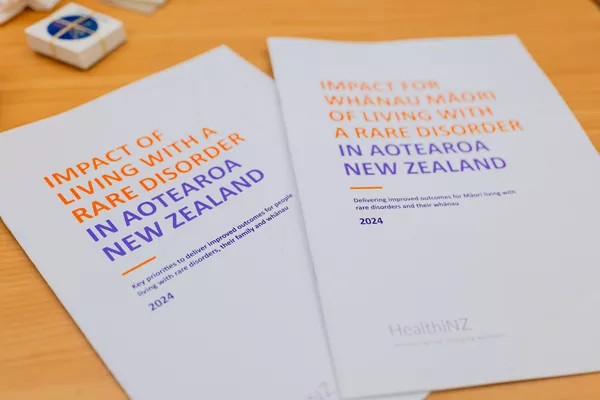Impact of living with a rare disorder in Aotearoa New Zealand in 2024
19 Aug 2024
Our biennial Voice of Rare Disorders surveys fill a health data gap to understand the impact living with a rare disorder has on different areas of life, as well as where the needs are and what barriers exist that prevent people from accessing the care they need for a decent quality of life.
Our most recent survey in the final quarter of 2023 had 1,076 responses, making it the largest-ever survey of consumer-reported outcomes for people with rare disorders in New Zealand. Anyone living with a rare disorder in New Zealand was strongly encouraged to take part, as well their whānau and carers.
The results paint a picture similar to our prior surveys, of isolation, lack of timely diagnosis, poor treatment access, lack of coordinated care, significant carer impact and for many, being lost in the system. More than ever, the results clarify the need for a comprehensive plan to deliver sustainable improvements in health outcomes for the rare disorder community.
Key findings from the 2023 survey
- Over half took longer than one year to get a diagnosis and, for almost one in five, it took over 10 years.
- 59% of people reported that the disorder impacted a lot on their health and everyday life.
- High utilisation of healthcare services, with the majority having seen a specialist or GP in the 6 months prior to the survey.
- Many have been in hospital over the last 12 months. More than one in three (39%) were in hospital for an average of 12 days as an inpatient, and one in 13 were admitted to ICU for an average of 4.6 days.
- There were few accessible, effective modern medicines available for the majority of people, with most being used to relieve pain and inflammation.
- Around half of people felt that organising care was difficult to manage.
- Two in three people did not feel at all informed about social services, nor financial help available.
- Over half felt that communication and information exchange between different service providers was poor and that professionals are poorly prepared to support them.
- The rare disorder caused a decrease in income for 74% of people.
- 57% have experienced increased tension between family members, and 69% experienced isolation from family and friends, amplified by or caused by their rare disorder.
- One in three people often felt unhappy and depressed and felt they could not overcome their problems, with a further third sometimes having these feelings.
Download the 2024 Impact of Living with a Rare Disorder in Aotearoa New Zealand
The proportion of people surveyed that included Māori as an ethnic group was 13.3%, much closer to National Census estimates than previous 2019 and 2021 surveys. This reflects improved engagement with this group. Responses from Māori are presented in the below companion report.
Download the 2024 Impact for Whānau Māori of Living With a Rare Disorder in Aotearoa New Zealand


